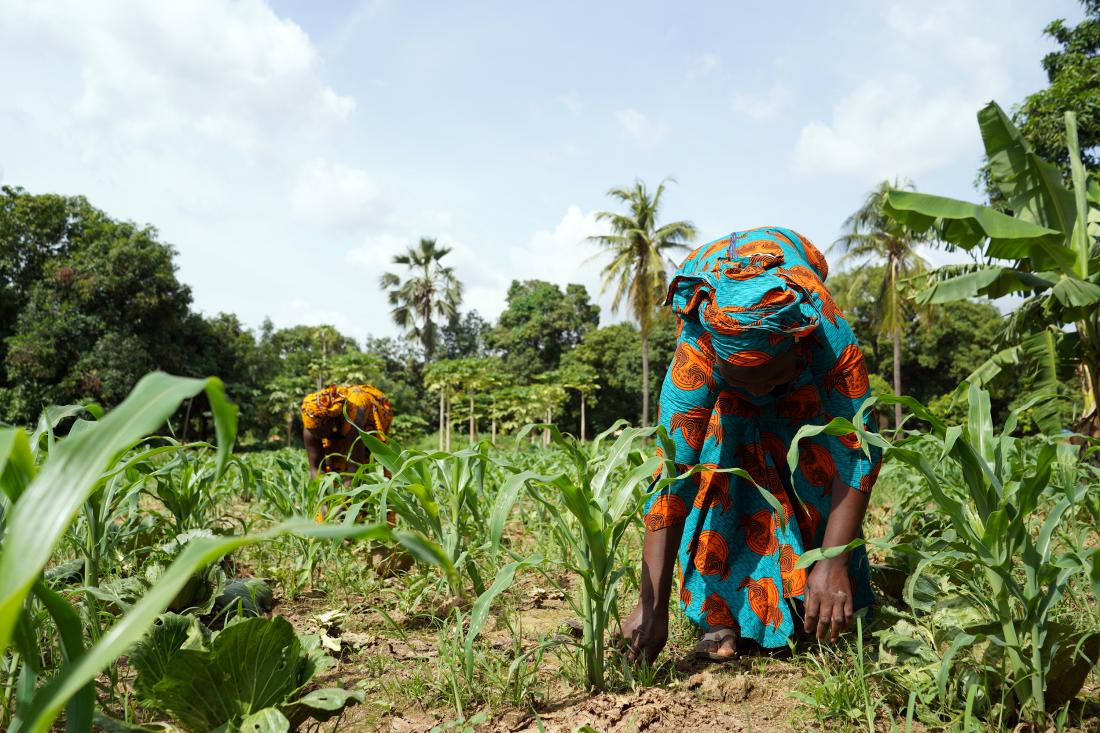The Impact of Advanced Payments on Farmer Welfare and Company Profitability in Zambia
- Farmers
- Small and medium enterprises
- Earnings and income
- Consumption smoothing
- Food security
- Productivity
- Commitment devices
- Credit
Many farming households in sub-Saharan Africa lack access to formal credit and struggle to make ends meet between harvests. In a previous evaluation, researchers found that increasing access to credit during the hungry season helped farming households in rural Zambia allocate labor more efficiently, leading to improvements in productivity and well-being. Researchers are adapting and scaling this seasonal credit product in partnership with a private sector company to evaluate the impact on household wellbeing, consumption patterns, wages, and company profitability in Zambia’s Lusaka, Central, Southern, and Eastern provinces.
Policy issue
Since farmers harvest crops (and therefore earn income) just a few times a year, many agricultural households struggle to save their cash and maintain their consumption in the months between harvests. For this reason, the period before harvest is often termed the hungry season. In the absence of opportunities to borrow during this time, farmers may reduce food consumption, take up informal credit, engage in short-term work on other farms or in the casual labor market, and or sell off assets like livestock. Previous research has shown that offering well-timed, seasonal credit to farmers can help boost agricultural productivity and smooth consumption, but few programs designed to provide seasonal credit to small-scale farmers exist in low-income settings.
One strategy to expand the provision of seasonal credit is to leverage existing contractual relationships between farmers and agribusinesses, or outgrower companies. In addition to supporting farmers by boosting their productivity, this arrangement could also benefit agribusinesses in three ways. First, since the agribusiness earns a margin on the harvest purchased from farmers, higher output should increase profits. Second, providing advance payments may discourage farmers from breaking their contracts to sell crops for immediate cash needs. Third, providing advance payments may increase farmer loyalty across seasons. This evaluation tests if offering seasonal credit through advance contract payments improves farmer welfare and firm profits.
Context of the evaluation
Agriculture is the largest source of employment in Zambia, where most agricultural production occurs on small-scale farms. Most farmers continue to live significantly below Zambia’s national poverty line, with average household incomes of less than US$500/year.
Currently, a majority of small-scale farmers in Zambia participate in contract arrangements with agribusinesses and receive inputs such as seeds, pesticides, and fertilizer on credit at the beginning of the agricultural cycle. In return, farmers commit to sell their harvest to the same agribusiness company, at which point outstanding debts from inputs are subtracted from the total sales value of crops.
Rainfall patterns in Zambia allow for only one harvest per year, which means that the income farmers earn after harvest must cover their household’s costs, food, and farming expenses for ten to twelve months. A previous randomized evaluation, Zambia found that increasing access to credit during the “hungry season” helped farming households allocate labor more efficiently, leading to improvements in productivity and well-being.

Details of the intervention
In partnership with Alliance Ginneries, one of Zambia’s largest outgrower companies, researchers are building upon the findings of their previous study and are evaluating the impact of an advanced payment contract on household wellbeing, consumption patterns, wages, and company profitability.
Typically, Alliance Ginneries provides farming input loans (cotton seeds and chemicals) at the beginning of the growing season in October through December, and purchases cotton back from farmers starting in June. Alliance’s network of cotton outgrowers currently covers approximately 35,000 farmers, who are managed at the village level by distributors. Distributors are typically farmers living in the same communities and receive a small premium for handling the outgrower contracts on behalf of Alliance. Each distributor oversees a group of 15-20 farmers.
Under the advanced payment contract intervention, farmers receive the total income from the harvest they sell to Alliance Ginneries in two parts: an advanced payment of 200 MWK (US $17) during the hungry season in January to help meet consumption needs, and the remaining amount at harvest time. Alliance Ginneries will deduct repayment, plus an additional transaction fee of 30 MWK (US $3), from the farmer’s sales earnings after harvest.
Alliance Ginneries will implement and administer the advanced payment contract intervention as part of their general operations in randomly selected administrative areas in Lusaka, Central, Southern, and Eastern provinces. Alliance Ginneries will randomize both at the administrative area and distributor level, rolling out the intervention in 24 randomly selected administrative areas, with 18 areas randomly assigned to the comparison group. Researchers will additionally randomly vary the number of distributors who offer the advanced payment contracts to farmers. In high intensity areas, six Alliance Ginneries distributors will be randomly chosen for the program, while only two will be chosen in the low intensity areas. All farmers managed by a distributor assigned to the intervention group will be offered access to the advanced payment contract. According to the study design, at least 2,500 farmers working with over 90 distributors would be offered the advance payment option in the 2018-2019 agricultural season. High take up meant that 3,400 Alliance farmers across four provinces were enrolled in the program.
In order to determine the impact of the advanced payment contract, researchers will use the Alliance Ginneries’ administrative data and will conduct their own household surveys during the hungry season. In order to measure spillover effects on other farmers who do not participate and local markets, researchers will survey farmers who work with treatment distributors.
Results and policy lessons
Study ongoing; results forthcoming.